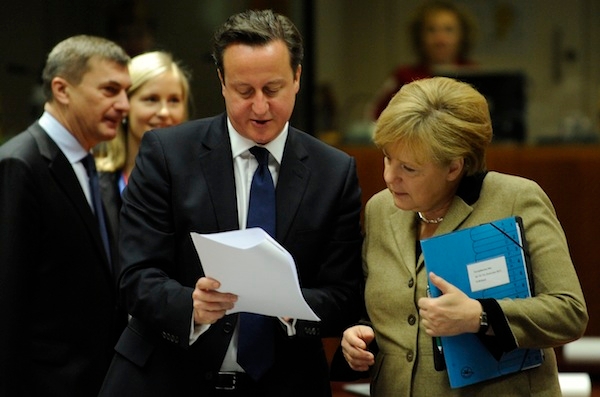Nick Clegg has made a not-so-startling intervention in the debate about Britain’s relationship with Europe today, warning that Britain must avoid selling itself short in a renegotiation. His interview with the Guardian is a necessary piece of positioning ahead of David Cameron’s Big Europe Speech in mid-January, and this kind of differentiation is something the Tories are more than happy for the Lib Dem leader to continue doing. So in some ways, Clegg warning Cameron not to overdo it on Europe isn’t at all significant.
But the Deputy Prime Minister makes an important observation in his interview about Britain’s bargaining power. Describing the creation of the single market and the enlargement of the EU in 2004 and 2007 as two of the ‘biggest historical triumphs’ of the past 40 years, he says:
‘Both of those projects were British projects. Both of them would not have happened without Britain. What I take from that is that, you know, even when we’re not at the front of the queue, when we exercise leadership we really can shape things in our own image and in the national interest.’
Though they take different stances, this is an argument that many Tory eurosceptics employ as well when they talk about renegotiation. Their point is that David Cameron needn’t fear approaching the EU with a request for a changed relationship for a number of reasons. The first is that Cameron himself performs extremely well on the world stage, which Clegg acknowledges in today’s interview, praising the Prime Minister for ensuring Britain’s interests were protected in negotiations on banking union. The second is that European leaders may well express exasperation with Britain for throwing its toys out of the pram at summits, but they also know that it is not in their interest to see Britain leave the EU, either. Britain is not unimportant to the EU: its net contribution to the budget being one big reason. Angela Merkel made clear recently that she couldn’t imagine Europe without the UK, which suggested the German Chancellor could well make concessions in a renegotiation to ensure the EU keeps Britain within its fold.
Clegg is worried that Cameron will be pushed by his eurosceptic backbenchers to turn his back on Europe. But the Deputy Prime Minister’s remarks underline why his Conservative colleague should feel that he can be bold when he makes that speech in the new year: he does have the capital to hold a robust position in a renegotiation.
 The Spectator Christmas double issue is out now. To read for free, download the all-new Spectator app for iPad/iPhone or sign up to a Kindle free trial.
The Spectator Christmas double issue is out now. To read for free, download the all-new Spectator app for iPad/iPhone or sign up to a Kindle free trial.







Comments